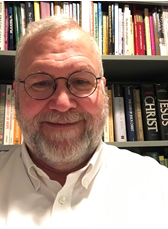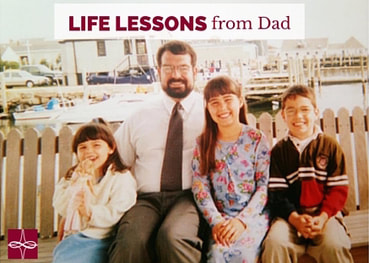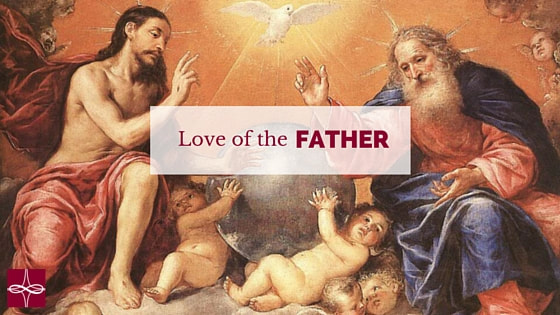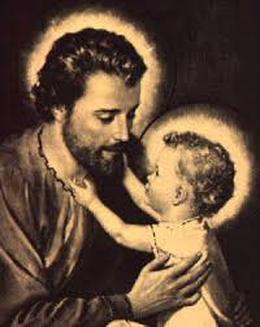|
“On the way of wisdom I direct you, I lead you on straightforward paths. When you walk, your step will not be impeded, and should you run, you will not stumble.” - Proverbs 4:11-12 Some of my fondest memories of my childhood are those with my dad. I grew up in Massachusetts, and I remember mulling around the Cape for a beach day, going into Boston to catch a game, or running to whatever sporting event I had that weekend. Being an only child, I was extremely close with both of my parents. We were a little trio, and did everything together. When I think of my dad, I not only think of all the fun memories we had, but I also think of all the life lessons I learned along the way—three of which I will go into detail about. Perseverance: From a young age, I saw the work ethic and determination my father had and looked up to him for that. Being a CPA, he was always working late hours and working on weekends. We knew when tax season hit that he was at his busiest. Despite this, my dad never missed a school concert, a soccer game (or even a practice for that matter), or a dance recital. If it was important to me, it was just as important to him. I can still remember him saying to me sternly, “Never, never, never give up”. No matter what was going on in my life, how upset I may have been, or how frustrated I was, that phrase was said many, many times throughout my life and I still call upon it during moments of doubt. Through crying at the dinner table trying to complete math homework, going through a rough patch with friends, or struggling through college applications, my dad would always remind me to never give up, that the Lord would always show me what was right for me. Knowledge: As I continue to reflect on phrases I learned from my dad, the other one that always pops into my mind is, “knowledge is power.” He used this phrase so much that he even has it engraved on a bookmark! While education and schooling were extremely important to my childhood, I knew he meant this phrase more broadly. We always talked through current events, explored new sections of the library, and tried to learn as much about anything and everything as possible. This allowed me to stay curious about the world around me, to never be satisfied with one answer, and to always search out the next. I think it’s also probably why I became a history major, as I have always loved to research. After a long week of work, my parents would wake up very early every Saturday morning and drive me an hour into the North End of Boston to take Italian language lessons. Thinking back on that now, I can see their commitment and self-sacrifice (instead of choosing to sleep in on a Saturday morning) to my global knowledge and taking every opportunity to learn something new. Faith: Another large aspect of my childhood revolved around faith. I can remember being a young child and not enjoying going to Mass. I was too young to understand the importance of what was going on in the Mass. While most of my friends were not Catholic, I couldn’t understand why I had to go. Instead of making me sit there and pout, my family tried to make the weekly Mass have some “fun” aspects to it. Whether it be squeezing hands at the end of the Our Father, getting Dunkin Donuts’ together at the end of Mass, or having me put our weekly donation into the basket, these fun little moments allowed my four-year-old faith to begin to grow. A man of great faith, my dad made sure I never missed a weekly Mass or a CCD class and remained involved in our Church community. My dad remained positive through all facets of life - often reminding me that God always had a plan, a path for each of us, and to follow in His guidance. Looking back, I am so grateful for the memories that I have made with my father over the years, and I am looking forward to the new memories that we will make now and in the future. I will always cherish the moments that we share together and will take his life lessons with me through every step of my life. To learn more about different facets of fatherhood, we invite you to visit our Year of St. Joseph Resource Page.
0 Comments
Being a dad is heroic stuff. It demands strength, hard work, a quick wit, a compassionate heart, and an unwavering commitment to the health and well-being of this cute little stranger that has captured your heart. Being a dad is usually intentional. Being an adoptive dad is intentionality on steroids. If all men look to St. Joseph as a guide, companion, and mentor, we will have a more just, prosperous, and peaceful world. While I am writing this reflection for all dads, I want to address young dads or men who are thinking about being dads. My hope is that St. Joseph will awaken in you a clear-eyed grasp of the “fiat” or “yes” of fatherhood. Let me share where I am coming from. I am an adoptive dad with three sons; the oldest is married with three kids of his own, the middle son is headed to college, and the youngest will be a high school junior in the fall. A life-long Catholic, my professional life is in the Church: campus ministry, priestly formation, and mission. Barb and I, married 23 years, wrote a book a few years ago – Rise, Take the Child – Reflections on the Vocation of Adoption. Joseph was an “in the background” saint to me until I became an adoptive dad. In my office, I have an icon of the Holy Family. Our oldest was baptized on the Feast of the Holy Family. In that icon, Joseph is holding Mary (on his right) and Jesus (on his left). He is holding Mary, who is holding Jesus, and he completes the “embrace” of Jesus. Who is this “third person” in the Holy Family? I wanted to encounter Joseph the man. I examined my assumptions. I thought of Joseph as an old man even though biblical evidence suggests he was a strong man, capable of protecting his family, leading them into exile in Egypt and back home, and establishing himself as a successful carpenter. There is nothing “romantic” about Joseph if Shakespeare’s Romeo is our model of a man in love. I find Joseph, in Franco Zeffirelli’s film Jesus of Nazareth, is authentically conflicted; balancing the longing for the completion of marriage, his desire for Mary, the promise of family, the hurt and anger he feels when he learns Mary is pregnant, and his deep desire to do good and avoid evil. Finally, contrary to Joseph’s Song, which I like in many ways, Joseph was not a “simple” carpenter. In the time of Jesus, and even in our time, a carpenter is much more than a laborer. Carpenters were craftsmen – highly skilled and “essential” for society. Some, perhaps even Joseph, were artists. When we pray with Saint Joseph, we need to see him first as a man with his own story, network of relationships, aspirations, work, skill, and deep, abiding faith. This is Joseph, Mary’s tender and loving betrothed, a fierce and decisive protector, a skilled and dedicated provider, and a humble and faithful father who raises Jesus, with Mary, into manhood in first century Galilee. We know the most about Joseph from the Gospel of St. Matthew, which records his four dreams. In his first dream, Joseph “wrestles” with what the law of his faith teaches and what his heart says. Fatherhood is born out of love of a woman. Heterosexual men “long for” the completion a woman provides. This sexual longing (eros) finds its perfection in self-sacrificing love (agape). Joseph does not ignore Mary’s pregnancy – he embraces it as an act of faith and love. He sets aside his fears, welcomes her into his home as his wife, and witnesses God’s saving act unfolding in and through her. His second dream compels Joseph to protect the Mary and the infant Jesus from Herod. Mary, in Luke’s Gospel, “makes haste” to visit her cousin, Elizabeth. Joseph, in St. Matthew’s Gospel, “makes haste” at night into an unknown exile to Egypt, away from the threat of Herod. I am sure there were other dangers on the way to Egypt and challenges in finding work and establishing a home there. There is far less drama in the third dream. Joseph was able to hire himself out as a skilled craftsman and establish a home in Egypt. And yet, he is called by God to help write the great “theo-drama” of salvation so that Jesus, his adoptive son, can fulfill his destiny as God’s “only begotten Son” who is “called out of Egypt.” In some ways, this is Joseph’s “fiat,” his “yes” to God. Through his actions, Joseph accepts the responsibility of raising Jesus as a Jewish man among his people. The fourth dream, on the road home, points to Joseph as provider – choosing a place where Mary and Jesus would be safe, where Jesus could grow “in wisdom and age,” and he could provide for them through the work of his hands. St. Luke’s Gospel points to the peace and tranquility of this domestic time (sometimes referred to as the “hidden life”) for Joseph when he tells the story of Mary and Joseph finding Jesus in the Temple. Imagine the frantic search for Jesus followed by Joseph seeing and hearing his son teaching the elders of Israel in the Temple, the most sacred place on earth. Imagine the rush of emotions – the relief, the wonder, the astonishment. As I prayed with this passage, I was reminded of my experience of my own son playing basketball. He was about ten or eleven years old, he was fouled, and he cautiously approached the free-throw line. He took command of the ball, set his body, and did a perfect shot. Nothing but net. It took my breath away. Others too. We just did not expect “perfection” from someone so young. Was that what Joseph felt when he heard Jesus teaching the elders of Israel in the Temple? In many ways, every father is called to be an “adoptive” father in the sense that they, too, must be intentional, like Joseph, in how they love their children. First, love your wife and partner with her to be a family. Protect her and your children from all that is evil with your strength, perseverance, and decisiveness. Provide for your family through your labor, your craftsmanship, your artistry. And raise your children to adulthood through the witness of your life, integrity, and faith. Pope Francis declared 2021 the Year of St. Joseph, and he wrote a wonderful apostolic letter, Patris Corde (With a Father’s Heart), that provides further insights into this ordinary hero, this extraordinary “every man,” who raised to manhood the Messiah, the Son of the Living God. Click here to read more about St. Joseph in this post written by Barbara and Don McCrabb.
On Sunday, we celebrate fathers. When I was young, my three siblings and I would use this day to thank our dad by giving him a few things he loved. We would let him sleep-in, make a full breakfast (sometimes corn muffins with icing writing) with a new “#1 Dad” mug each year, give him the cards we had made, go to Church as a family, pray the Memorare prayer to St. Joseph, and then leave him to fall asleep watching the NASCAR race on the couch (and not even change the channel while he was sleeping). It was a great day to make my dad feel appreciated. Since I moved away from home, I still try to celebrate Father’s Day by sending a card or two, giving my dad a phone call, and keeping in touch. Most importantly, I have realized that my dad has taught me three important lessons about life: to always keep your head up, that family will always be there for you, and that a Catholic should live in service to the community and with faith in God. In thinking about my dad’s example, I can’t help but feel that his life also modeled that of St. Joseph, the foster father of Jesus.
I’m pretty optimistic, and I get it from my dad. He has a thing about quoting movies. Some of his favorite lines are Dory’s “Just keep swimming, Just keep swimming” from Finding Nemo and The Lion King’s “Hakuna Matata.” During challenging times in my family, silly reminders like these helped teach my siblings and me about perseverance and keeping a smile on our faces. Even now, I use these phrases as mottos and words to live by, and have been able to pass along a similar optimism to the students I teach and my own friends. My dad also taught me about love and support with family. He was the one to encourage my siblings and me to be nice to each other, reminding us, “You’re going to want to keep in touch with each other, because one day you might actually be able to stand one another.” Turns out, he was right. Three of the four of us live in Washington, D.C. and appreciate each others’ company more than ever. St. Joseph also modeled a steadfast commitment to family, even in the midst of hardship. He remained loyal to Mary in their betrothal after finding out she was with child; he guided the expectant Mary into Bethlehem and took care of her despite not finding room at an inn; and Joseph led the Holy Family into Egypt for safety as a result of the persecution implemented by King Herod. The final lesson to consider is my dad’s faith and devotion to the Gospel. When I was young, he would start the day by praying with the family through a passage in either the New Testament or the Psalms and say an “Our Father” together before leaving to teach for the day. My dad has always been big on service and helping others, too. He was the one to initiate the Kirby’s into parish hospitality and we began to run a monthly “coffee hour” where we would serve coffee and doughnuts to our fellow parishioners. Around this same time, he also became a city councilor to further help the community. Through his faith and commitment to service, my dad reminds me of St. Joseph. My dad’s continued positivity, the prioritization of our family in his life, and his life of faith and service model the life of the foster father of Jesus. The Memorare of St Joseph was prayed on Father’s Day in my house growing up: “Remember, O most pure spouse of the Virgin Mary, my beloved Patron, that never it has been heard that anyone invoked your patronage and sought our aid without being comforted. Inspired by this confidence I come to you and fervently commend myself to you. Despise not my petition, O dearest foster father of our redeemer, but accept it graciously. Amen.” St. Joseph, patron of fathers and workers, was a humble man who said “yes” to God. After finding out that his betrothed was pregnant with God’s son, St. Joseph continued to protect and care for his family, knowing that there would be hardships and danger in the future. Although not much is written about St. Joseph besides what is in the Gospels, he is remembered for his commitment to Mary and Jesus and his simply-humble nature. As we celebrate Father’s Day this Sunday, we can remember St. Joseph in prayer and thank him for his respectful obedience in service to God’s plan in our lives though faith, service, and focus on the family. "In light of Father’s Day, I have been reflecting on how the Father cares for his children, and how we can understand God’s fatherhood."
“… You, oh Lord, are our Father…” (Is 63:16) During an especially difficult time of transition in my life, I became very bratty with God. As in, I whined to God the Father, and was very spiritually dramatic. “Abba! Daddy!,” I screamed, “What are You doing with my life? What is going on?” The short answer: taking care of me. The long answer: taking care of me in ways I haven’t even begun to realize. In light of Father’s Day, I have been reflecting on how the Father cares for his children, and how we can understand God’s fatherhood. We live in an age characterized by fatherlessness. Personally, I don’t have the best relationship with my earthly father, and neither do many of my peers. This can sometimes damage our view of God the Father. Does the Father really love me? Does He like me? These and other questions can plague our spiritual lives as we seek to understand our roles and vocations in life. Someone somewhere along the way told me the Father loves me, and I believed them. But I have also wondered what that means. What does it mean to be taken care of by a good father? What does a good father look like? What role does spiritual fatherhood play in this age? To get some answers, I grabbed a few books. I also bribed my pastor with brunch one Saturday and asked him. The Catechism of the Catholic Church, in paragraph 2223, states that parents are responsible for “creating a home where tenderness, forgiveness, respect, fidelity, and disinterested service are the rule. The home is well suited for education in the virtues. This requires an apprenticeship in self-denial, sound judgment, and self-mastery - the preconditions of all true freedom.” The Catechism says parents, not just the mother or the father, but both create the home. How often in sit-coms, movies, or advertising do we see dads being labeled as irresponsible buffoons who can’t take care of their children or run a household without impending disaster? How often do we hear, jokingly of course, that a woman’s husband is her biggest kid, implying that she has to take care of him as if he can’t care for himself and others? In my conversation with my pastor, Fr. Michael, he pointed out the similarities and differences of biological and spiritual fatherhood. A spiritual father can never replace and cannot be as close as a biological father because the community a priest serves is diverse and varied. Human fatherhood, both biological and spiritual, is for the sake of directing children to depend upon God the Father. In other words, they are to train their children to not need them anymore. Fatherhood is meant to be a pilgrimage of surrender, directing the lives of their children to see that God has been working in their lives and caring for them all along. While a father will always be there for his children, praying for and supporting them, his mission is to train them to see God the Father for who he is and to be receptive to the Father’s love and his will for their lives. Fr. Michael said fatherhood should be approached with awe and gratitude and humility because God the Father is allowing a fallen human man to participate in his mission of loving his people, and this man might get it wrong. People fail. It happens. Even the best of fathers and priests and popes make mistakes. There was a reason Pope St. John Paul II went to confession every week. (What was he confessing? We don’t know. But clearly it helped him love us better.) The parable of the prodigal son could also be called the parable of the patient father. He longs for our hearts to be united to his heart, whether we are the faithful older son or the rebellious younger son. There is a place for each of us in our father’s house. No matter how petulant, rude, or down-right bratty we are with him, our Father loves us and cares for us. He will not fail us, even if we have no idea what his will is during a moment of turbulence. “Then God said, ‘Let Us make man in Our image, according to Our likeness; and let them rule over the fish of the sea and over the birds of the sky and over the cattle and over all the earth, and over every creeping thing that creeps on the earth.’ God created man in His own image, in the image of God He created him; male and female He created them. God blessed them; and God said to them, ‘Be fruitful and multiply, and fill the earth, and subdue it; and rule over the fish of the sea and over the birds of the sky and over every living thing that moves on the earth.’ … God saw all that He had made, and behold, it was very good” (Genesis 1:26-28, 31).
From this exaltation we begin our reflection on Father’s Day. Many countries set aside the third Sunday of June in honor of both fathers and fatherhood. It’s usually the time when dads are shown the appreciation of their families for all their love, protection, devotion, guidance, caring, wisdom, teaching, entertainment, discipline (ouch), cooking, support, shuttling around, mentoring, coaching, and/or generosity. It’s a totally fair trade-off but also no secret: fatherhood demands much of a man. Unfortunately, not all are blessed to have a father in their lives, and there are many circumstances which contribute to this. Thankfully, God Himself has provided a model for human fatherhood, someone who He entrusted His own Son to during the crucial formative years of Jesus’ human life: St. Joseph. We look to Saint Joseph as the perfect example of paternity, as he was given the honor of being the guardian of the Holy Family. St. Joseph is not directly quoted in scripture, but what about his actions? Do they speak louder than his words (or lack thereof)? It seems that Joseph’s most frequent biblical deed besides traveling is something men can easily relate to— sleeping before taking action (see Matthew 1:20 and 2:13)... but surely there must be more to being a father than this!? Of course there is! To me, being a true (Christian) father means being a Christ-like man who bears witness to the perfect love of God, and who is a virtuous man to his children, spouse, and to all he encounters. We hear a lot about Mary’s hugely consequential “Yes” (see Luke 1:38) to the Father’s will at the Annunciation and how this is the Blessed Mother’s complete giving of herself to God. In his own soft-spoken way, though, Joseph also gave his own “Yes” and similarly submitted himself to the will of God. Even with the extraordinary circumstances of his betrothed’s pregnancy, Joseph, in the end, places his trust in the divine will and accepts the paternal role God offers him as part of His plan. Like Mary, Joseph selflessly placed whatever desires and plans he had for his future second to what he had now been called to become— Jesus’ guardian and protector. It is this obedience that makes Joseph such a worthy role model for all men. Being righteous (see Matthew 1:19), Joseph knew he did not have all the answers; let alone the experience, for the fatherhood he was being called to. Instead, he stepped aside in faithful acceptance of God’s will. As Saint John Paul II so beautifully put it: What emanates from the figure of Saint Joseph is faith. Joseph of Nazareth is a “just man” because he totally “lives by faith.” He is holy because his faith is truly heroic. Sacred Scripture says little of him. It does not record even one word spoken by Joseph, the carpenter of Nazareth. And yet, even without words, he shows the depth of his faith, his greatness. Saint Joseph is a man of great spirit. He is great in faith, not because he speaks his own words, but above all because he listens to the words of the Living God. He listens in silence. And his heart ceaselessly perseveres in the readiness to accept the Truth contained in the word of the Living God. We see how the word of the Living God penetrates deeply into the soul of that man, that just man. (St. John Paul II, Daily Meditations) This past weekend we celebrated Father’s Day, and whether the father in our lives is a biological one, a father figure, or wears a Roman collar, take the time this week to personally thank both he and God for the impact he’s had on your life. Fatherhood is no easy task and is not for everyone, but the love that flows from this holy calling comes directly from Abba God, “our Father in heaven” (Matthew 6:9-13)! May we be obedient to and cherish these men at all times! Thomas Wong is an undergraduate at The Catholic University of America currently studying abroad in Rome, Italy. |
Details
Archives
July 2024
Categories
All
|
About |
Media |
© COPYRIGHT 2024 | ALL RIGHTS RESERVED










 RSS Feed
RSS Feed